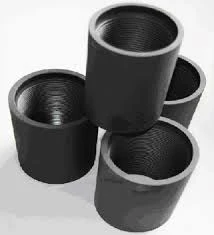- Afrikaans
- Albanian
- Amharic
- Arabic
- Armenian
- Azerbaijani
- Basque
- Belarusian
- Bengali
- Bosnian
- Bulgarian
- Catalan
- Cebuano
- Corsican
- Croatian
- Czech
- Danish
- Dutch
- English
- Esperanto
- Estonian
- Finnish
- French
- Frisian
- Galician
- Georgian
- German
- Greek
- Gujarati
- Haitian Creole
- hausa
- hawaiian
- Hebrew
- Hindi
- Miao
- Hungarian
- Icelandic
- igbo
- Indonesian
- irish
- Italian
- Japanese
- Javanese
- Kannada
- kazakh
- Khmer
- Rwandese
- Korean
- Kurdish
- Kyrgyz
- Lao
- Latin
- Latvian
- Lithuanian
- Luxembourgish
- Macedonian
- Malgashi
- Malay
- Malayalam
- Maltese
- Maori
- Marathi
- Mongolian
- Myanmar
- Nepali
- Norwegian
- Norwegian
- Occitan
- Pashto
- Persian
- Polish
- Portuguese
- Punjabi
- Romanian
- Russian
- Samoan
- Scottish Gaelic
- Serbian
- Sesotho
- Shona
- Sindhi
- Sinhala
- Slovak
- Slovenian
- Somali
- Spanish
- Sundanese
- Swahili
- Swedish
- Tagalog
- Tajik
- Tamil
- Tatar
- Telugu
- Thai
- Turkish
- Turkmen
- Ukrainian
- Urdu
- Uighur
- Uzbek
- Vietnamese
- Welsh
- Bantu
- Yiddish
- Yoruba
- Zulu
Exploring Bull Plug Oil and Gas Technologies for Enhanced Energy Solutions
The Role of Bull Plug in Oil and Gas Operations
In the oil and gas industry, efficient operations and reliable equipment are paramount for the profitability and safety of any project. Among the various components that contribute to operational efficiency, bull plugs have emerged as critical tools for managing fluid flow and maintaining system integrity. In this article, we will explore the significance of bull plugs in oil and gas operations, their applications, and the benefits they offer.
What is a Bull Plug?
A bull plug, often referred to as a blind plug, is a type of fitting designed to seal the end of a pipe, preventing the flow of liquids or gases. It is typically made from durable materials such as steel, brass, or other alloys, ensuring that it can withstand the harsh conditions present in oil and gas operations. Bull plugs are designed to create a tight seal, effectively blocking the flow of fluids and minimizing the risk of leaks.
Applications of Bull Plugs
Bull plugs are utilized in various scenarios within the oil and gas sector. One of their primary applications is in wellhead installations, where they are used to seal off unused ports or connections. This is vital in preventing contamination and maintaining the integrity of the well.
Furthermore, bull plugs are employed during maintenance and repair activities. When a section of a pipeline needs to be serviced, the bull plug can be used to isolate that section without stopping the entire operation. This isolation is crucial, as it allows for continued production while ensuring that work can be completed safely and efficiently.
bull plug oil and gas

Additionally, bull plugs are instrumental during the testing and commissioning phases of oil and gas projects. By sealing certain parts of a system, they allow engineers to conduct pressure tests and leak tests, ensuring the entire system functions as intended before going live.
Benefits of Using Bull Plugs
The use of bull plugs offers several advantages in the oil and gas industry. Firstly, their robust design and secure sealing capabilities help to prevent leaks, thereby reducing the risk of environmental contamination. This is particularly vital given the increasing regulatory scrutiny and the industry's push for sustainable practices.
Moreover, bull plugs facilitate operational flexibility. They allow for partial isolation of systems, enabling maintenance and repairs without disrupting the entire operation. This not only saves time but also minimizes costs associated with downtime.
In addition, bull plugs contribute to safety. By preventing leaks, they reduce the risk of hazardous spills that could pose threats to workers, equipment, and surrounding environments. The peace of mind that comes from knowing that systems are appropriately sealed is invaluable in an industry where safety is paramount.
Conclusion
In conclusion, bull plugs play an essential role in the oil and gas sector. They provide a reliable means of sealing pipes and wellheads, contributing to the overall efficiency and safety of operations. As the industry faces ongoing challenges related to environmental responsibility and operational efficiency, the importance of robust components like bull plugs will continue to grow. Investing in high-quality bull plugs and implementing best practices for their use can lead to significant improvements in the management of oil and gas operations, ensuring productivity while safeguarding the environment and worker safety.
-
Tubing Pup Joints: Essential Components for Oil and Gas OperationsNewsJul.10,2025
-
Pup Joints: Essential Components for Reliable Drilling OperationsNewsJul.10,2025
-
Pipe Couplings: Connecting Your World EfficientlyNewsJul.10,2025
-
Mastering Oilfield Operations with Quality Tubing and CasingNewsJul.10,2025
-
High-Quality Casing Couplings for Every NeedNewsJul.10,2025
-
Boost Your Drilling Efficiency with Premium Crossover Tools & Seating NipplesNewsJul.10,2025







